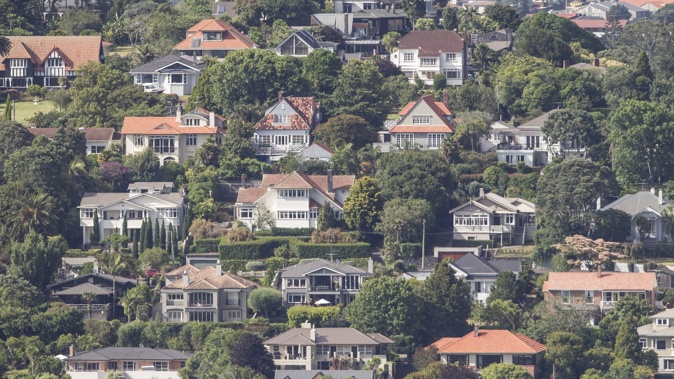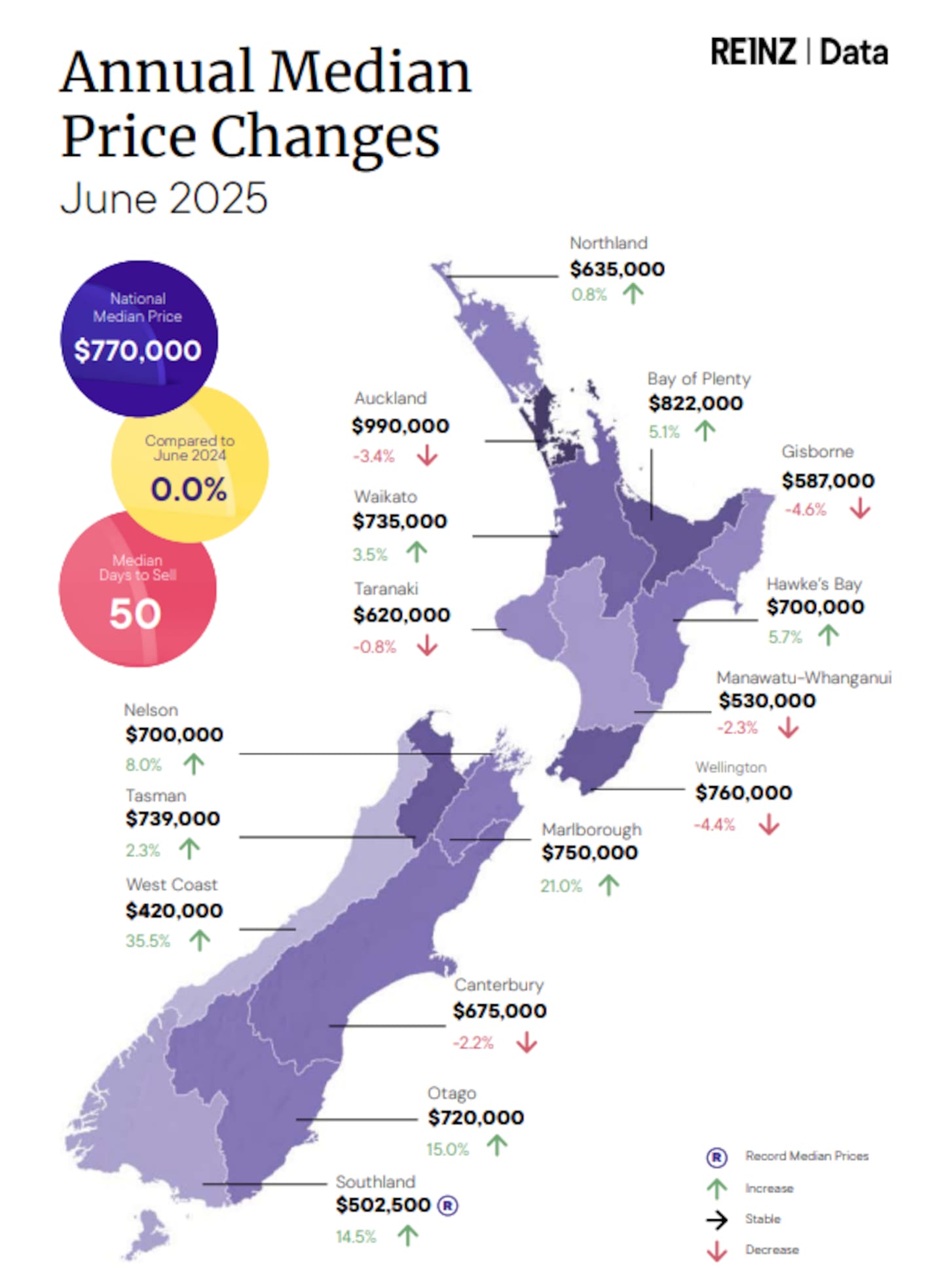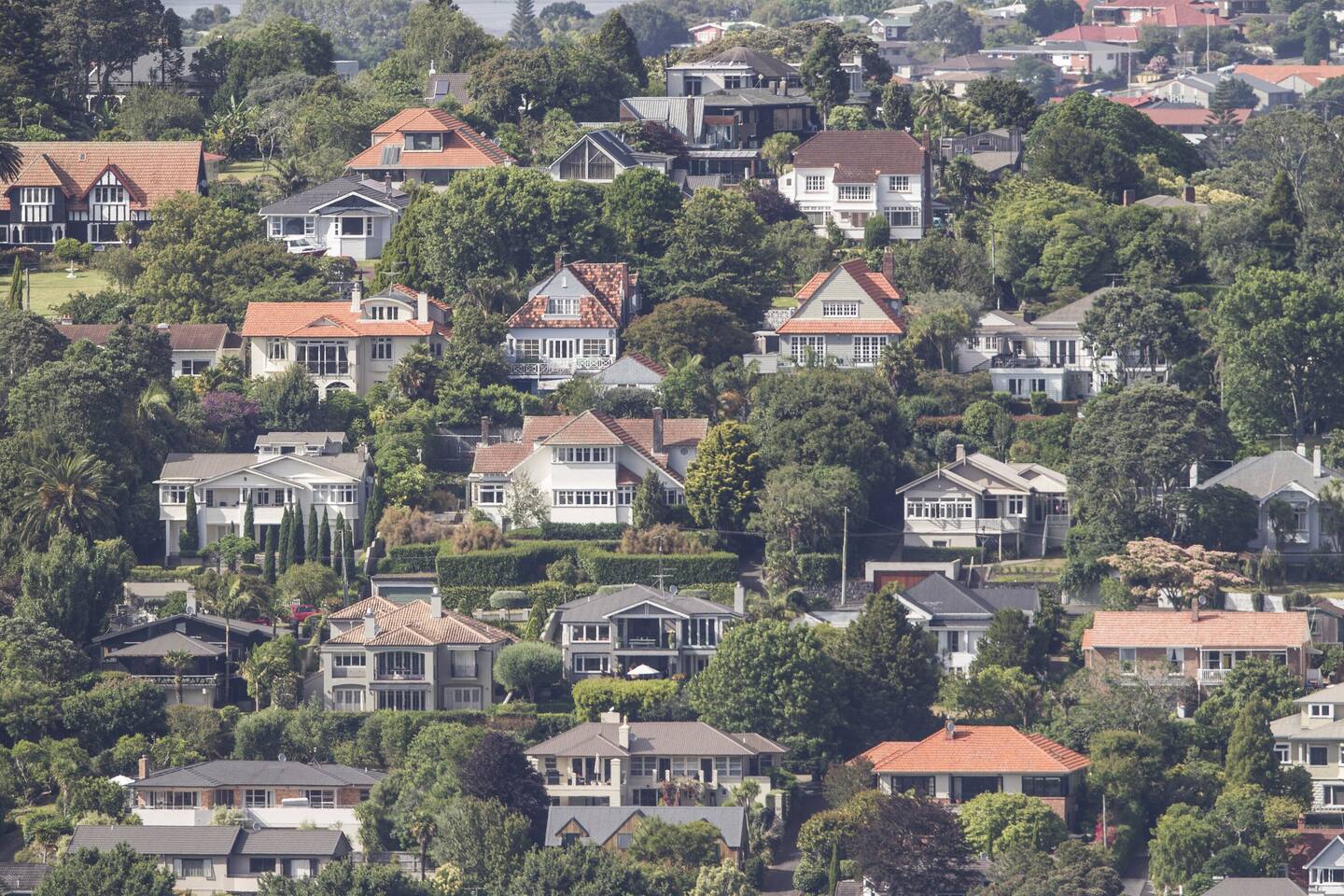
The median house price in Auckland has fallen 3.4% in a year, dropping to $990,000 - but price growth in the regions is keeping the market stable on the surface.
The Real Estate Institute of New Zealand released its Property Report for June this morning. Chief executive Lizzy Ryley said it showed “contrasting regional dynamics”.
The national median price was unchanged from last June at $770,000. Excluding Auckland, the national median increased by 1.7% year-on-year, reaching $691,500.
The West Coast, meanwhile, saw its median house price jump more than $100,000 year-on-year, a 35.5% increase to $420,000.
And Southland’s median price hit a record high at $502,500, the first record median price in any region since January.
“We’re seeing a market that is steady on the surface but with some movement underneath at a regional level,” Ryley said.
“The unchanged national median price suggests stability, yet this reflects contrasting regional dynamics, with some areas experiencing renewed growth year-on-year,” she said.
Ryley said sales volumes were lower than expected.
The number of properties sold in June rose by 20.3% since last year, from 4877 to 5865. Excluding Auckland, the number of sales rose 21.4% from 3371 to 4091.
 The Real Estate Institute of New Zealand has released its June Property Report. Photo / Real Estate Institute of New Zealand
The Real Estate Institute of New Zealand has released its June Property Report. Photo / Real Estate Institute of New Zealand
Sales volumes increased by 70% in Gisborne year-on-year, rising from 20 sales to 34; Southland saw a 34.9% jump, the Bay of Plenty a 44.4% increase, and Marlborough 32.7% more sales.
“June is typically a quieter month for real estate, and while the seasonal slowdown was expected, sales came in slightly below typical early winter levels,” Ryley said.
“Nationally, seasonally adjusted sales fell by around 5%, suggesting some caution in the market, but compared to this time last year, sales remain significantly stronger overall.”
The median number of days to sell property has increased across the country. The number of properties coming to market, meanwhile, was down.
June saw a 2.5% drop in listings compared to last year, with 7612 listings. Excluding Auckland, listings were down 3.3% to 4700. Inventory levels rose by 2% with 32,384 properties available for sale.
 The median house price in Auckland has fallen 3.4% in a year, dropping to $990,000 - but price growth in the regions is keeping the market stable on the surface. Photo / Michael Craig
The median house price in Auckland has fallen 3.4% in a year, dropping to $990,000 - but price growth in the regions is keeping the market stable on the surface. Photo / Michael Craig
Auctions made for 11.5% of all sales through June, with 676 auction sales in the month. Excluding Auckland, there were 315 auction sales, 7.7% of total sales.
The median number of days to sell increased by three days to 50. Excluding Auckland, the number of days rose by four to also reach 50.
“While properties are still selling, the increase in median days to sell indicates that buyers are taking a more considered approach,” Ryley said.
“This shift probably reflects a broader sense of caution, with many buyers feeling they have the time to explore their options, especially with the amount of choice they have.
“Most vendors are entering the market with realistic price expectations and a willingness to adapt to current conditions, especially those motivated to sell. However, many are receiving offers below their anticipated value, prompting some to delay listing, or relisting, until spring or summer, when market activity may show signs of improvement.”
Raphael Franks is an Auckland-based reporter who covers business, breaking news and local stories from Tāmaki Makaurau. He joined the Herald as a Te Rito cadet in 2022.
Take your Radio, Podcasts and Music with you









